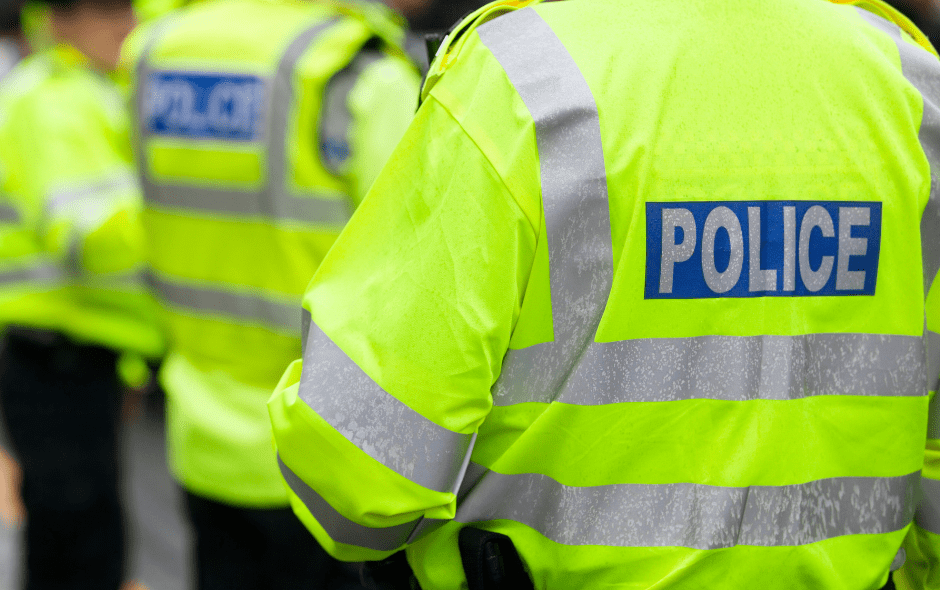Our Chief Executive, Lesslie Young, has written about our collaborative working with Police Scotland. Thanks to Police Scotland for their continued commitment to listen to the voices of people with epilepsy.
“Alone we can do so little; together we can do so much.” – Helen Keller
There is much to be gained from collaborative working. When two or more organisations, with very different backgrounds and experience, work together on a shared goal, significant and positive change is achievable.
That change has a wider reach because of the combined cohort represented by the stakeholders in the collaboration.
Our collaborative working with Police Scotland began in 2009. Many seizure-related incidents were not recognised due to a lack of understanding of the condition.
We worked with the police service to improve their understanding of epilepsy, how seizures manifest themselves and how to support those who seizure in the community.
The shared aim was to ensure the safety and wellbeing of the person with epilepsy and avoid the inadvertent entry of that person to the criminal justice system, should their seizure activity be misinterpreted.
This culminated in the co-production of a training DVD which also had significant input from the Crown Prosecution and Procurator Fiscal Service (COPFS).
This was to be shown to all new police recruits and ensure all police officers had a better understanding of the condition. It continues to be used today.
Making sure Police Scotland are full informed about epilepsy
We have built on the good working relationship developed with Police Scotland and continued to help produce positive change. I am part of the National Taser Advisory Group and the Independent Ethics Advisory Panel.
The purpose of these groups is to work in collaboration with many stakeholders to gather as much information as possible to inform decision making when developing process and procedures, keeping those with epilepsy as well as other conditions as safe as is possible in challenging situations.
The DVD is used in the training of every Specially Trained Officers.
We have worked hard to ensure Police Scotland are fully informed about epilepsy when dealing with the public and in turn they have educated us by describing the difficulties and challenges they meet. Together we have succeeded in making positive progress.
More recently our focus has been on the recruitment process of Police Scotland when applications are received from people with epilepsy.
We identified anomalies in the process when assessing those applicants for the role of police cadet.
When we approached Police Scotland, we could see there was an appetite to work together to improve outcomes for those who want a career in the police service.
The level of understanding of the individualised nature of epilepsy, how it is managed and the impact or lack of on individual recruits with the condition needed to be raised.
We explained to Police Scotland and their Occupational Health (OH) provider to treat all applicants with epilepsy as one collective entity was not the best way forward for the applicants or the service.
A more person-centred approach needed to be adopted especially when assessing the need for reasonable adjustment(s).
Positive results
By all stakeholders sharing best practice, Police Scotland and the OH provider, have embraced the person-centred approach which continues to be built upon.
This means people who have a diagnosis of epilepsy will be assessed more equitably for the role of a police officer.
We accept individuals will be assessed on a case-by-case basis and appointment is not guaranteed depending on the risk/adjustment assessment required.
That does not just apply to those with epilepsy. What is guaranteed is an individualised, values-based assessment of each case.
This change in process has opened a door for our community to a career which was very difficult for them to access until now.
Our many years of collaborative working with Police Scotland continues to achieve positive results for those we represent and equally important to the benefit of both organisations.
We are grateful to Police Scotland and their Occupational Health provider for listening to our evidence and amending process as a result.
These examples of collaboration demonstrate the real need for this to become the norm. No one person or organisation can be an expert in everything.
Through partnership working, better informed decisions are made which in turn creates a fairer and more equal society for all.
We will continue to champion partnership working to improve the lives of people living with epilepsy.




